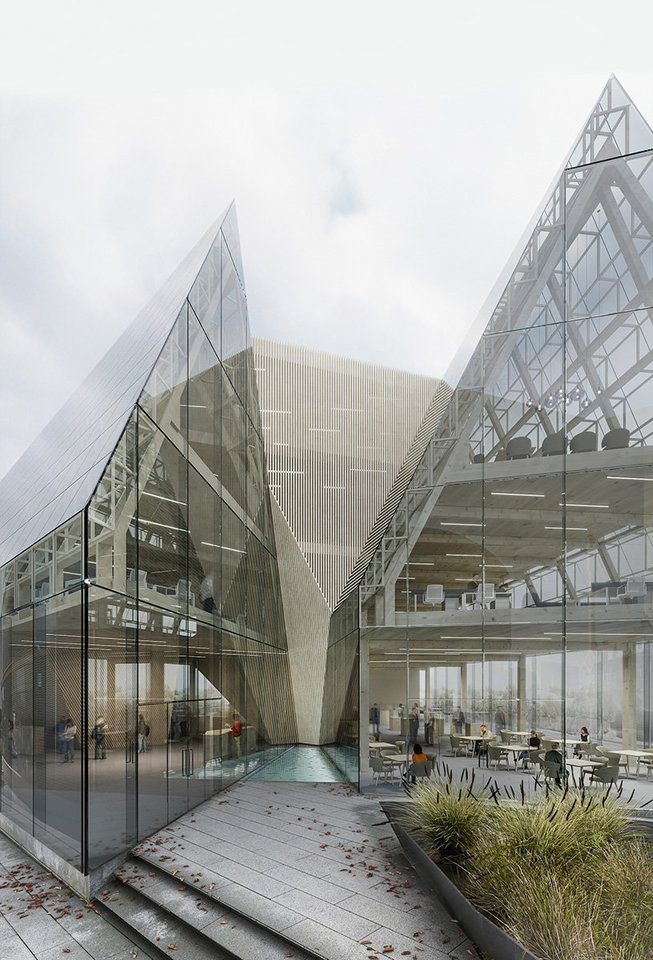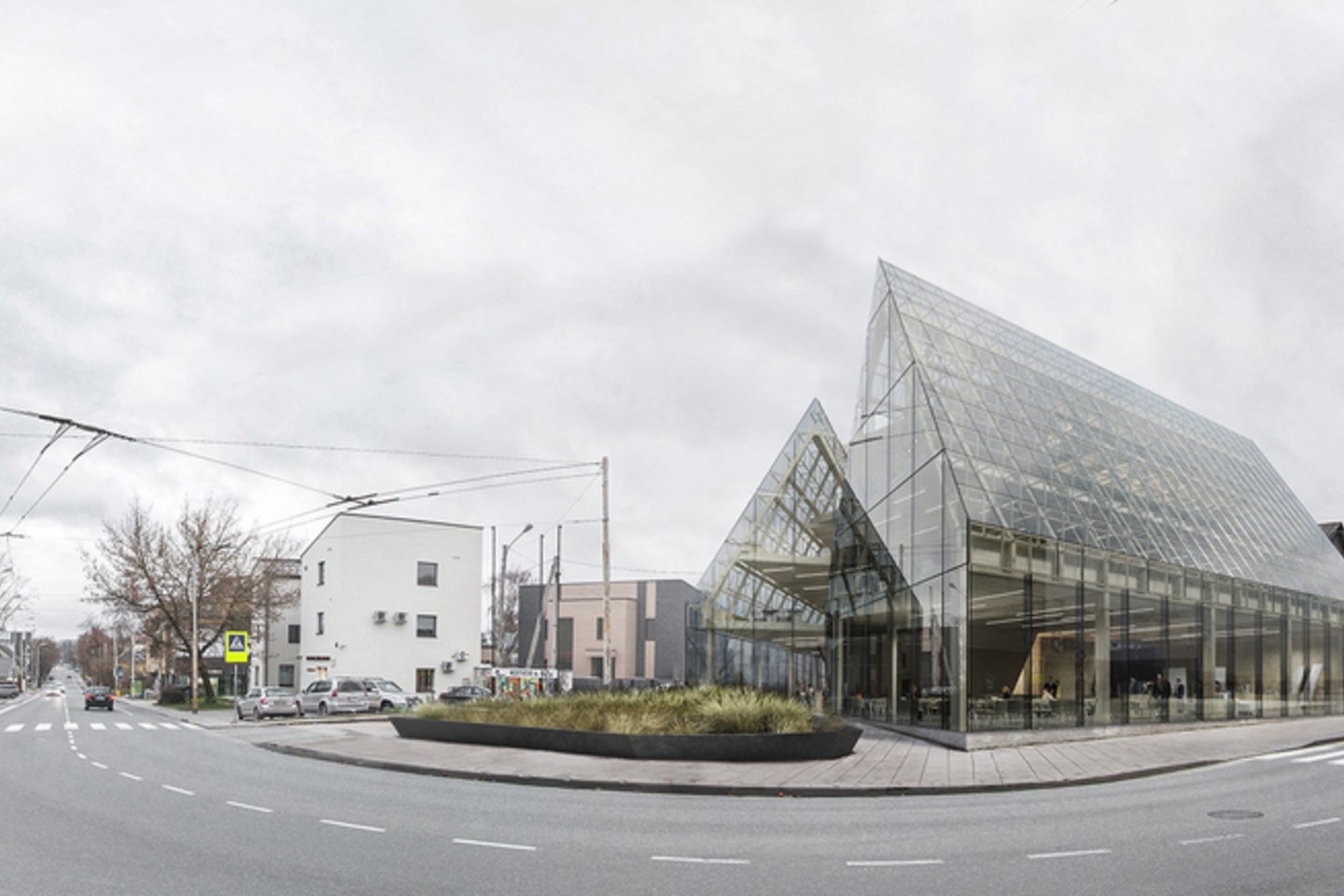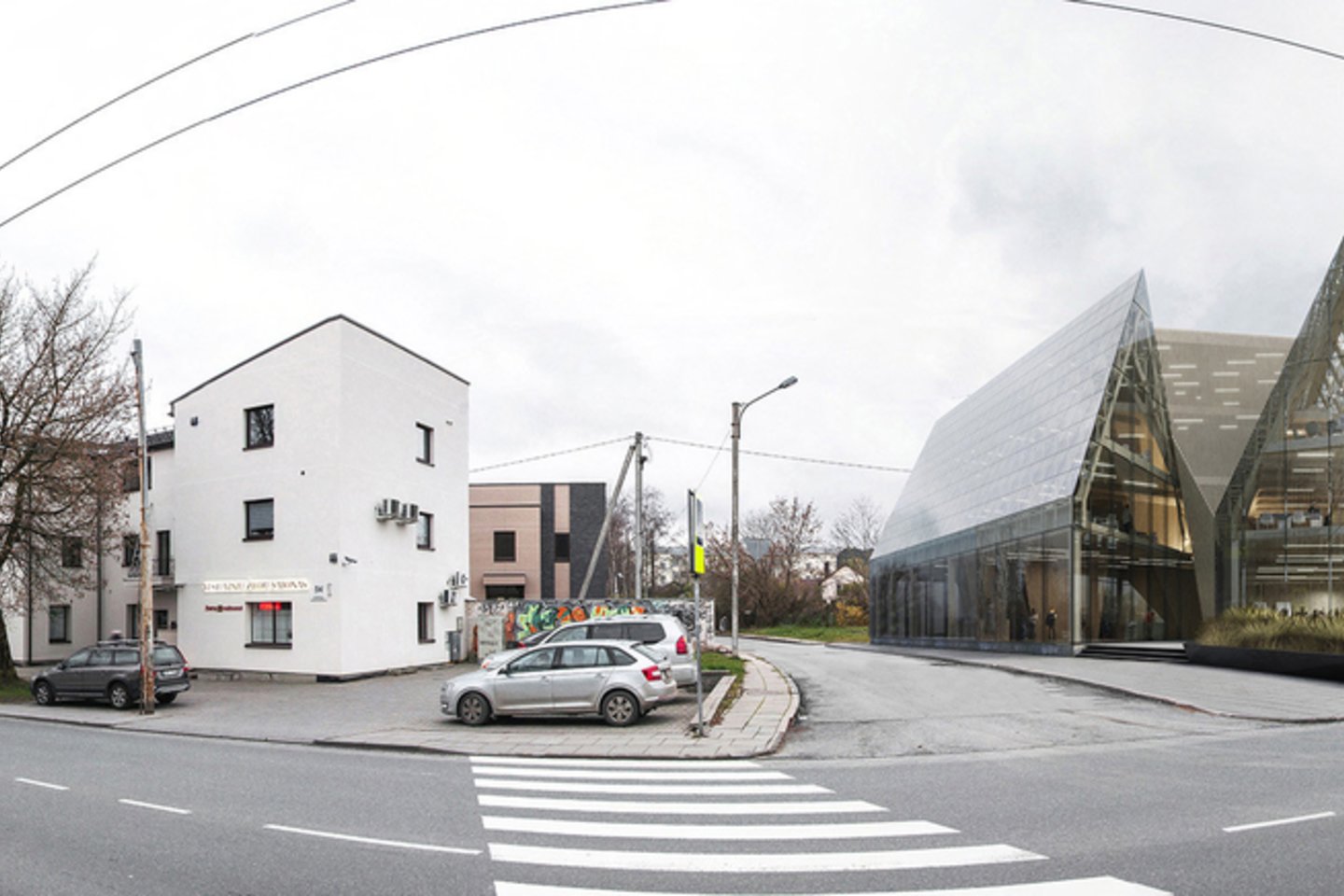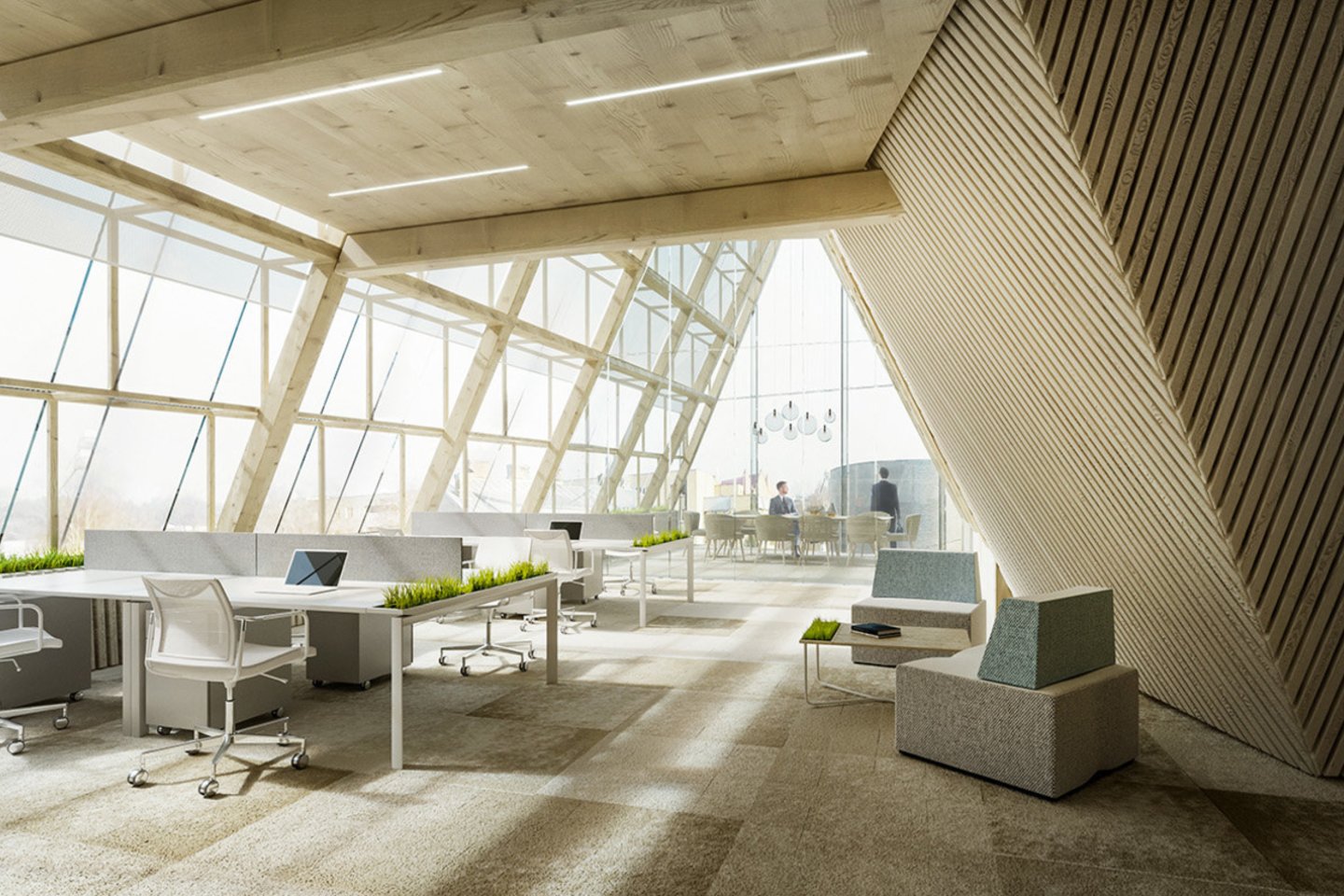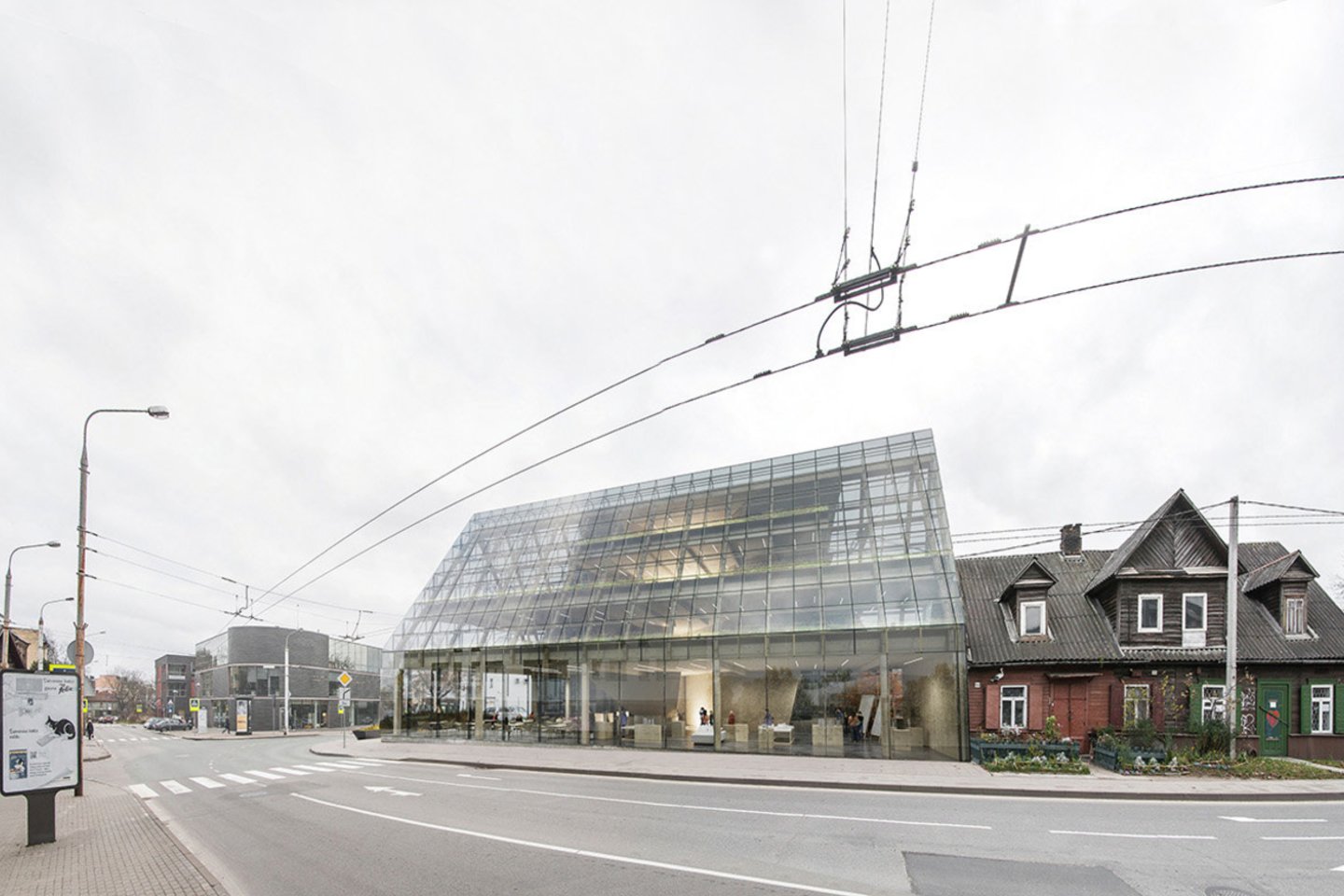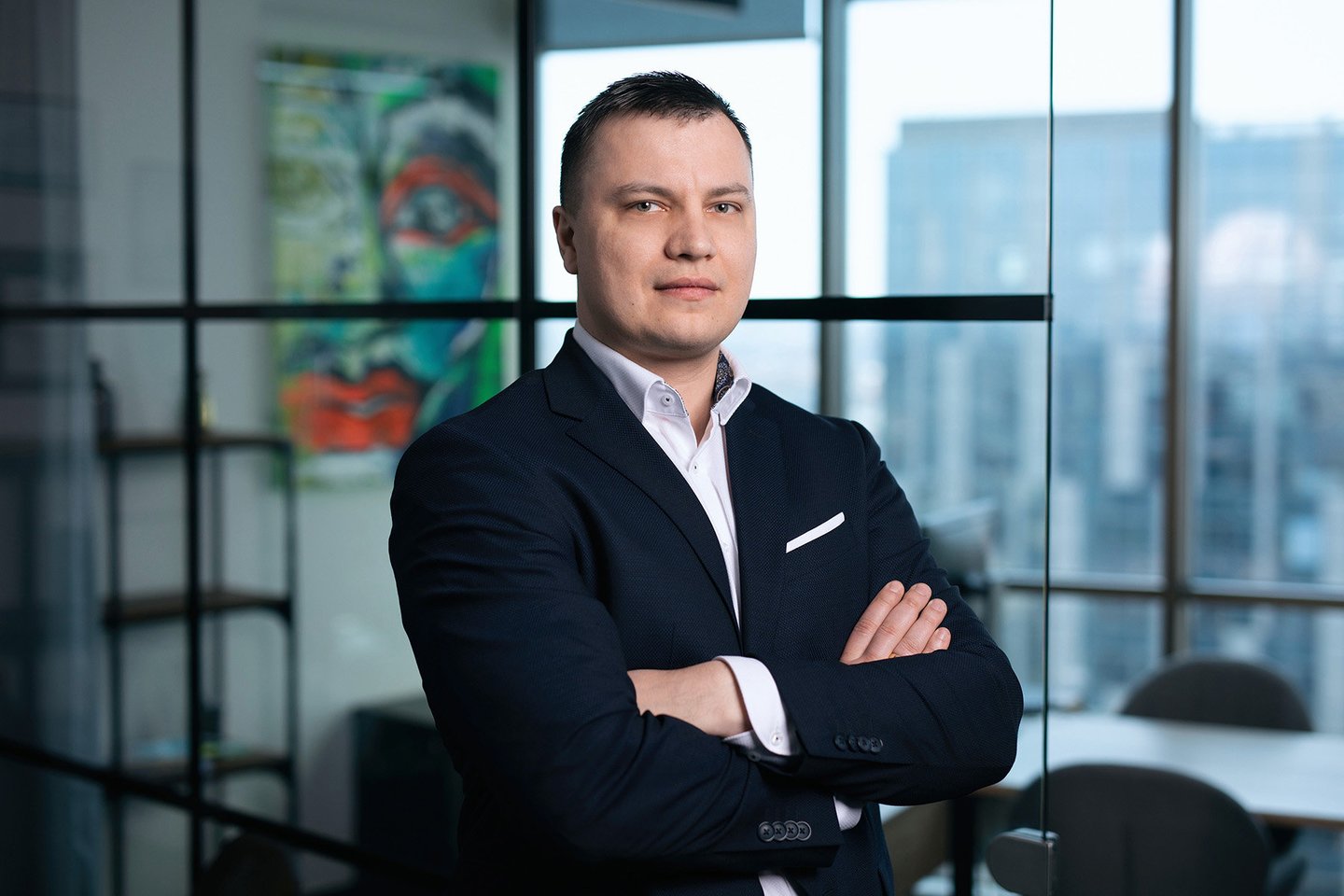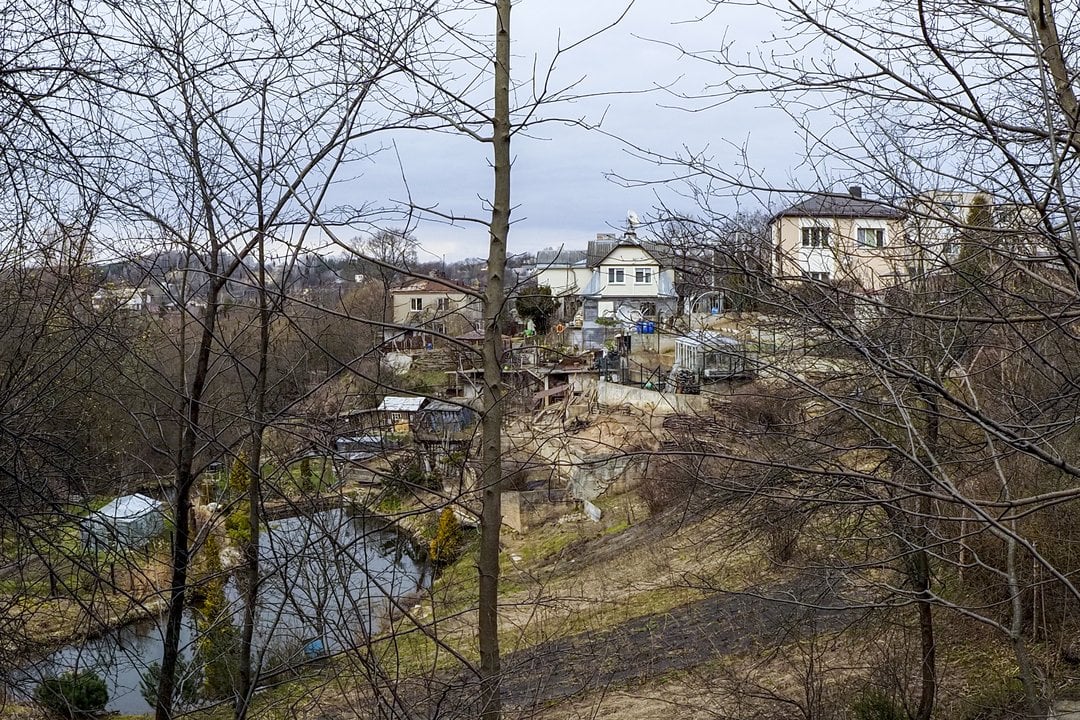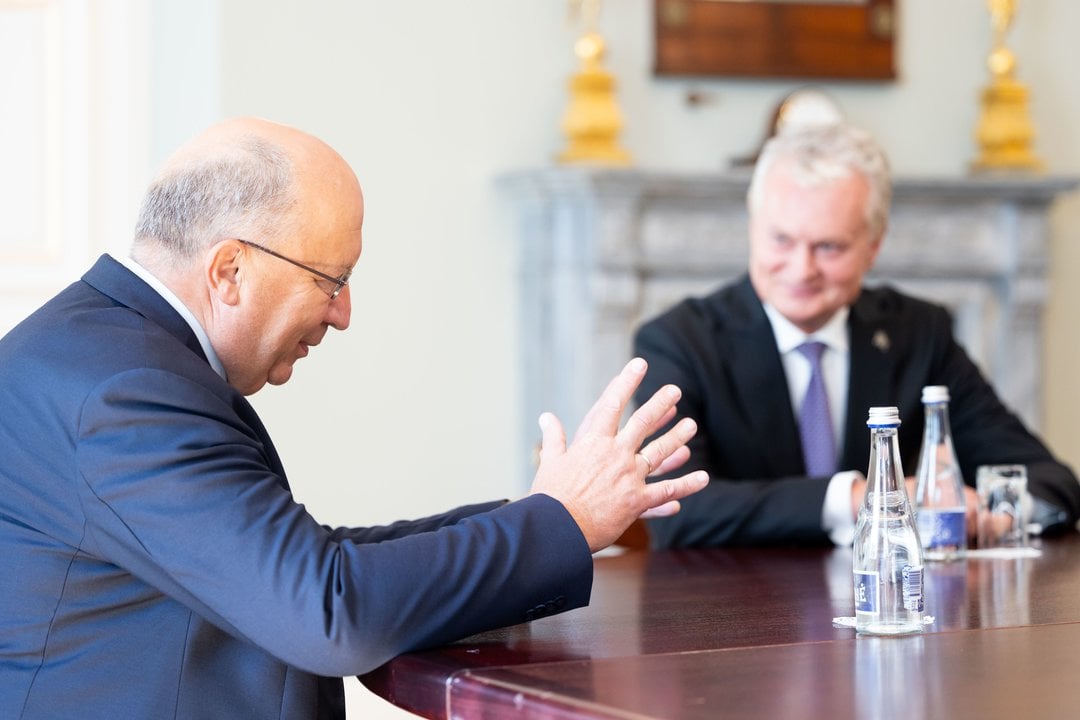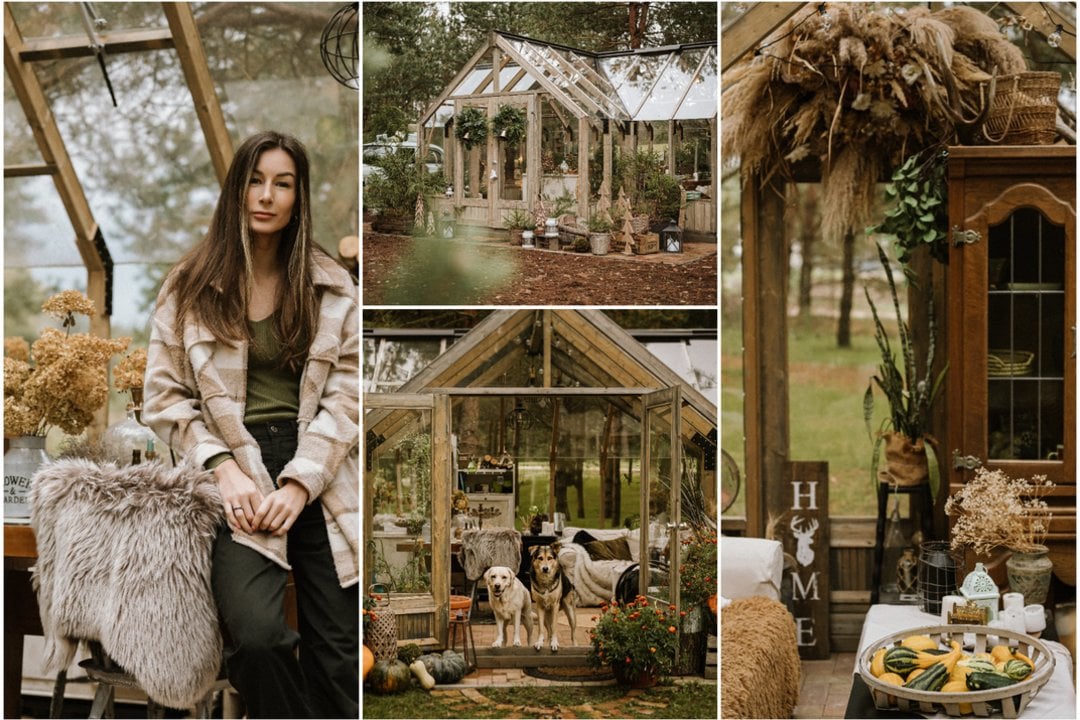The first place in the competition was awarded to the Arches project, named Office Villas. The studio's architects have designed award-winning projects, including the Quadrum business centre in Vilnius, the distinctive K and D Complex in Klaipėda, the Amberton Green SPA hotel in Druskininkai, and the residential building Slėnio vila, which has received global recognition. The building created by Arches for the Linea community received an award for respecting the spirit of old Žvėrynas.
„When organising an architectural competition for such a unique location in the capital and aiming for a prominent building, we set exceptionally high standards. Žvėrynas is known for its unique architecture and distinctive urban spirit, and the intersection of Sėlių and Kęstučio streets serves as its modern gateway. We envision an exceptional architectural structure here, one that seamlessly blends historical heritage with the vision of a modern capital,“ said Mantas Galdikas, the director of Citus.
After initially considering a concept featuring two-story old Žvėrynas-style houses with modern glass facades and sustainable wooden construction profiles, they realised it was too expensive and bureaucratic. In 2020, as global uncertainty continued, they revisited the project and concluded that both the project and they themselves had matured.
The planned project on Sėlių Street is authored by architects Edgaras Neniškis, Arūnas Liola, Rolandas Liola, Kipras Kazlauskas, and Ernesta Bagužaitė. In collaboration with this team and with the involvement of Mutuus designers, technical project and preliminary proposals are being prepared for public presentation.
„The new structures or complexes that most successfully integrate into the Žvėrynas environment are those that manage to preserve the characteristics, scale, and relationship with public spaces of the suburban villa typology. The intersection of Kęstučio Street and Sėlių Street forms the centre of the northern part of Žvėrynas. With that in mind, the new administrative complex is designed to create a public space at the intersection, where the visual axes of the main streets intersect and create a unique urban gateway for the area,“ said Rolandas Liola, director of Arches, a partner in the studio, and a member of the Vilnius Architects' Association council.
Sustainability is a top priority, and modern solutions are being explored
„For the small business centre with a total area of 3,099 m2 and an above-ground area of 2,263 m2, which will house approximately 100 employees, the goal is to obtain a BREEAM Excellent sustainability certificate, adhering to the highest energy efficiency standard, A++. Various modern solutions are being explored to enhance employee comfort, further complementing the exceptional architecture,“ stated Mantas Galdikas, the director of Citus.
The project will require an estimated €10.5 million in investments. Approximately 1,900 m2 will be allocated for offices, and 600 m2 will be designated for open commercial spaces, retail, services, and exhibition areas. A rooftop terrace will cover an additional area of up to 200 m2.
The four-story business centre features a glassy, transparent profile that does not overwhelm the space visually, while revealing the wooden structural elements of the building. Starting from the second floor, stepped facades evoke traditional architecture, reducing the building's apparent size, creating shade, and helping to minimise street noise.
„The environmental history and urbanistic concept dictated the composition of monumental two-story glass profiles shaping the street facades, combined with the central core profile. The modern interpretation of double-skin facades reflects the historical architecture of Žvėrynas while honouring the previous building on the site. The core that connects the profiles was created as a blind contrast to the transparent glass profiles—a sculptural composition concentrating all communication functions. The latter is only visible in the gaps between the perimeter profiles, making it a focal point for organising flows on the site and within the building,“ explained architect R. Liola, one of the project authors.
Modern solutions are being sought for the building's glass facades. Discussions are underway with various manufacturers to integrate coatings that protect interior spaces from solar heat and even modules that generate energy within the glass.
All 50 parking spaces will be situated in the underground car park, utilising smart, automated parking systems to accommodate them all in a single underground level. Electric charging stations will be installed in 32 of the parking spaces. The project also includes two spaces designated for disabled individuals (Type A and Type B).
To encourage future employees to commute without cars, 20 bicycle parking spaces have been designated. According to BREEAM certification requirements, cyclist changing rooms with showers and sanitary facilities will be provided on the underground level of the building. The underground car park will have fourteen bicycle spaces equipped with charging infrastructure for electric transport devices such as bicycles, scooters, and electric mopeds.
„This will be a boutique segment business centre oriented toward businesses that value their office not only as a workspace but also as a competitive advantage. With its location, architecture, design solutions, and targeted certifications, it will be an exceptional office building beyond the definition of a business centre. One of its most prominent features is the space allocated for a single workplace, which exceeds standard norms several times. In the Citus-managed project, we plan to have up to 100 workstations, meaning nearly 20 m2 of space will be allocated to each. Currently, in a traditional business centre, the average space allocated for a single workstation is about 6 m2,“ emphasised the director of the managing company, Citus.
Industry leaders are expected to establish themselves in the project, particularly high-standard international companies for whom the office adds value to existing and future employees and clients, confirming the uniqueness of their brand.
The plan includes a square next to the building, emphasising the main entrance, along with a landscaped inner courtyard accessible by going around the building, and an open green rooftop terrace.
Pedestrian flows will be established to complement existing pedestrian infrastructure and merge with it. The surrounding infrastructure will be improved with new pavements, elevated utility and electrical lines, and an updated trolleybus contact network segment. Discussions will also be held with the municipality about developing or transforming the adjacent undeveloped plot into public space.
Construction is scheduled to commence in 2024, immediately after obtaining the construction permit, with completion expected within two years. More details about the solutions and construction timelines will be clarified once the preliminary proposals are approved and the technical project is finalised.
Accessibility, public services, and community engagement
The CEO of Citus emphasises that one of the most critical aspects of this business centre is the ground floor space, which is accessible to everyone and complemented by public areas and functions. The goal is for the project to not only blend visually into the context of Žvėrynas and the entire city of Vilnius but also become an integral part of the neighbourhood’s life.
The ground floor is designed to intersect with pedestrian traffic, making it passable and offering various functions, attractive public spaces, and valuable services. There are plans to create a gallery, attract artists, and include a café or restaurant.
„Before moving forward with the project's public consultation procedure, at the initiative of the Vilnius City Municipality, we organised a meeting with the community. During this meeting, we once again presented the project and discussed the services or solutions they would like to see in it. We emphasised that this will be a small boutique segment project that will complement the existing Žvėrynas landscape without becoming an outsider. We received some excellent ideas: the people here would like artist workshops and a neighbourhood Christmas tree in the area. We are pleased that the community has shown such engagement and support, and we will carefully consider their proposed ideas and explore possibilities for their realisation,“ emphasized M. Galdikas.
Public support for the project was sought from the beginning. The architectural competition was organised without such a requirement, and a community representative was involved in the commission. A street art school temporarily operated in the building located on the project site.
According to the CEO of Citus, involving communities in discussions even before the project is made public could become a widespread approach, and other developers should also consider applying it.
Numbers and facts:
Address: Sėlių Street 48, Vilnius.
Plot area: 1,253 m2.
Planned investments: approximately 10.5 million Euros.
Purpose: administrative building, business centre (1,902 m2) with commercial retail, service, and exhibition spaces (600 m2).
Total area: 3,099 m2; above ground: 2,263 m2.
Number of floors: 4 plus a rooftop terrace.
Parking spaces and types: 50 for cars, underground, with an innovative automated parking system; 32 for electric vehicles; 2 for disabled individuals.
Sustainable mobility: 20 bicycle parking spaces (14 underground with electric transport charging infrastructure; 6 above ground).
Energy class: A++. Other solutions include geothermal heating and cooling, climate control systems, automated parking systems, wooden building structures, and more.
Construction timeline: Q2 2024 – Q2 2026 (planned).
Architects: UAB Arches; designers: UAB Mutuus. developer: UAB Kauseta; manager: UAB Citus; construction manager: UAB Citus Construction.

